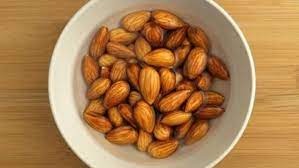Seven efficient methods to strengthen your heart before the severe winters
The winter season is approaching, and before we realize it, the bitter cold will arrive. The combination of freezing temperatures and strong winds will limit our mobility and make us even more inactive. As the heart is one of the organs most impacted by the winter, it’s essential to take precautions before that occurs to protect your health. The risk of myocardial infarction, heart attack, and sudden cardiac death is higher during the colder months. Individuals who already have certain cardiac diseases need to take additional precautions, such as keeping an eye on their blood pressure, clothing warmly, staying indoors in the early morning and late at night, eating a balanced diet, and controlling their stress.
“As the seasons change and the country’s northern regions experience lower temperatures, it is critical that we safeguard our health from the illnesses and viruses that accompany these changes. The heart is one organ that needs special care since the winter months might present more risks to cardiovascular health. A World Health Organization (WHO) study states that cardiovascular illnesses cause a large number of deaths worldwide and place a heavy strain on society. This emphasizes how crucial early identification and efficient treatment techniques are,” says Dr. Gagandeep S. Wander, the Heart Institute’s associate director of interventional cardiology in Medanta, Gurugram.
How the cold months might be bad for your heart
In addition to limiting the options for outdoor exercise, colder months may cause blood vessels to constrict, raising blood pressure and increasing the risk of sudden cardiac death.
“Heart health may be significantly impacted by the colder months. It may cause blood vessel constriction, which might raise blood pressure and strain the heart more. The colder months may raise heart rate and, in some situations, cause blood to thicken, which increases the risk of heart disease. Furthermore, exercising in the cold places an additional strain on the cardiovascular system. During these months, it is recommended that those who are older or more susceptible to cardiovascular problems exercise inside. In addition to increasing the risk of myocardial infarction and sudden cardiac death, cold weather is associated with worsened heart symptoms as angina and arrhythmias. Dr. Gagandeep adds, “Those who already have heart conditions, such as coronary artery disease, are advised to take extra precautions during harsh winters.”
How to keep your heart healthy in the cold
Dr. Gangadeep offers some recommendations to fortify heart health in preparation for the severe winter months:
1. Keep an eye on your blood pressure
It is crucial to regularly check blood pressure, particularly in the winter when stress from the holidays and the cold weather may cause swings. Establish a program of monitoring with your healthcare practitioner so that any irregularities may be promptly detected and managed.
2. Taking prescription drugs as prescribed
Infection risks increase with the arrival of winter. To prevent chest infections, it is essential to be vaccinated against pneumonia and influenza before the season starts. It is crucial to treat any infection-related symptoms as soon as possible by taking the right medications. Maintaining cardiac health in anticipation of severe winters necessitates giving appropriate adherence to cardiac medication a priority, especially for those with cardiac disorders.
3. Put on cozy attire
Wearing appropriate winter clothing is crucial to maintaining body warmth all winter long. Invest in warm clothing items like hats, gloves, boots, and jackets to assist retain body heat and lower your risk of an infection and subsequent cardiac problems.
4. Continue your exercise indoors
Even if bad weather makes it difficult to exercise outside, regular physical activity is essential for heart health. In severe winter weather, it is advisable to switch to indoor activities. Regular exercise and physical activity support both achieving and maintaining a healthy weight and enhancing cardiovascular health.
5. Make a diet that is heart-healthy.
Festivals and holidays are often associated with winter, so although it might be tempting to overindulge in decadent, high-calorie foods, it’s crucial to find a healthy balance. Incorporate fruits, vegetables, whole grains, and lean meats into your diet to promote heart health. These meals are high in nutrients that help lower cholesterol and promote cardiovascular health. Furthermore, watch how much salt you eat since too much of it might raise your blood pressure.
6. Continue to drink water
People may not feel as thirsty in the winter as they do in the summer. But maintaining proper hydration is crucial for heart health. Consuming enough water keeps blood volume and viscosity stable, which improves the heart’s pumping efficiency. To keep warm and be well hydrated, choose warm drinks like herbal teas and soups.
7. Control your tension
Holiday planning and the difficulties of enduring the cold may also be added burdens throughout the winter. Prolonged stress may have a detrimental effect on heart health by raising blood pressure and raising the chance of heart disease. To enhance general well-being, include stress-reduction practices like yoga, deep breathing exercises, or meditation into your daily routine.
You may strengthen your cardiovascular health by using these strategies: eating heart-healthy foods, exercising regularly, controlling your stress, drinking enough of water, and keeping an eye on your blood pressure. Proactive action can help you not only overcome the obstacles of winter, but lay the groundwork for a heart-healthy lifestyle all year long, says Dr. Gagandeep.







